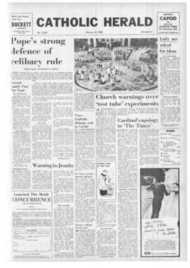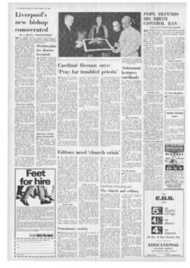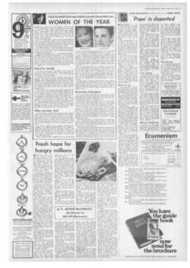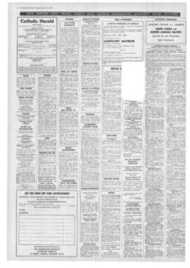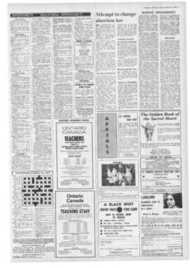Page 6, 21st February 1969
Page 6
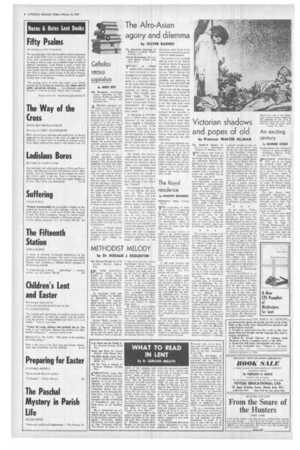
Report an error
Noticed an error on this page?If you've noticed an error in this article please click here to report it.
Tags
Share
Related articles
Clarity About Unity
A Warning To Us?
Arts Page
The First Liturgy In English
Fortitude And Temperance, By Josef Pieper
METHODIST MELODY
by Dr. ROSALIE J. EGGLESTON
The Musical Wesleys by Erik Routley (Herbert Jenkins 50s.) DR. ERIK ROUTLEY, general editor of the Studies in Church Music series, has contributed yet another book to the study of English musical history. This time he treats of five members of the Wesley family who were musical.
As musicians John and Charles Wesley, the founders of Methodism, are more notable for their theories about church music than for their performance of it. However, Charles two sons, Charles H and Sebastian, were child prodigies whose early promise as composers was not fully realized in later life.
Samuel Wesley, though he became a composer of some note, as best known as the father of Samuel Sebastian (1810-1876). It is with good reason that the major part of Dr. Routley's book is devoted
to this son of Samuel and his housekeeper, Sarah Suter.
Samuel, Sebastian showed none of the early promise of his father and uncle, but he he did inherit his father's love for J. S. Bach. He is easily the most cultivated English musician 'of his day not only because of his compositions and his association with the Three Choirs Festival, but also because of his acquaintance with continental musicians chief among whom were Mendel&sohn• and Spohr. His bestknown hymn "Blessed be the God and Father" is widely sung today. ,
Dr. Routley's very readable book is of interest not only to specialists in musicology, but to anyone interested in the history, sociology, and psychology of the eighteenth and nineteenth centuries. As the present-day implications of the liturgical reform movement unfold this book may become an important document for those concerned with the hymns of the Roman Catholic Church.
blog comments powered by Disqus


